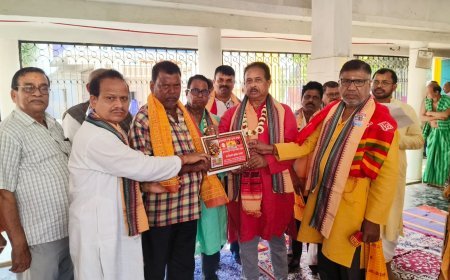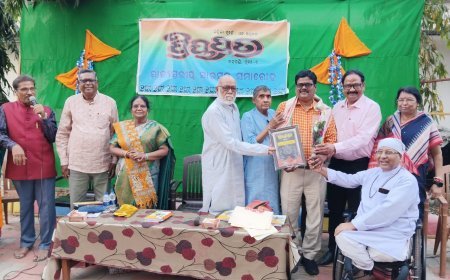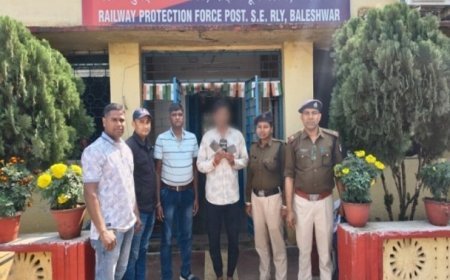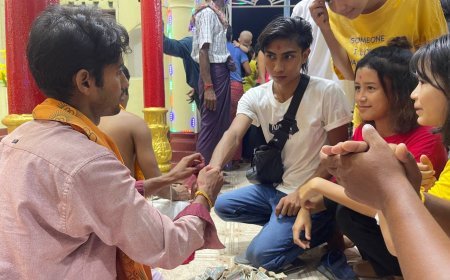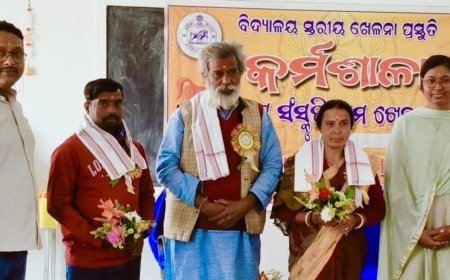Women Empowerment: Beyond Mere Words, A Call for Action
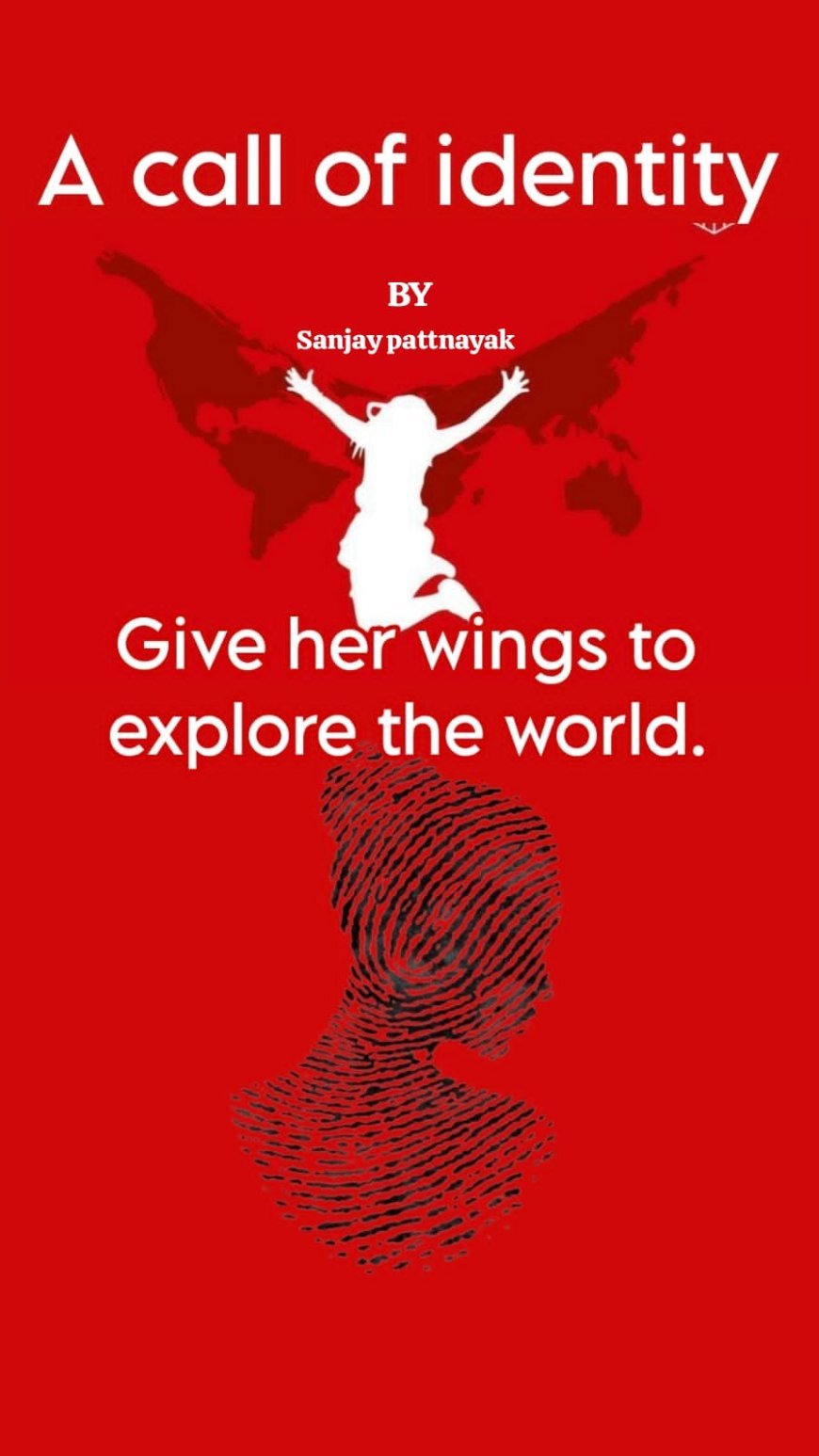
By- Sanjay Pattnayak
In today’s society, we often hear the term "women empowerment" tossed around. Unfortunately, in many cases, this powerful phrase has been reduced to just a combination of words, used to check a box or create an illusion of progress. The reality for countless women tells a very different story. Can we truly say women are empowered when their safety, dignity, and respect are constantly under threat? Is earning money the sole criterion for empowerment, or is it much deeper, extending to the very essence of their humanity?
Empowerment Is More Than Economic Independence
It’s important to recognize that economic independence, while crucial, is only one aspect of empowerment. A woman may earn a salary, hold a prestigious position, or manage a household, but if she lives in constant fear of harassment, violence, or discrimination, can we really claim that she is empowered?
True empowerment goes beyond financial stability. It encompasses the freedom to live with dignity, to express oneself without fear, and to participate equally in every sphere of life—whether in the home, workplace, or public spaces. It’s about having control over one’s life choices without facing societal or cultural barriers.
Safety and Security: A Basic Right, Not a Privilege
The safety and security of women should never be up for debate. Yet, in a society where women are teased, molested, abused, raped, and even killed, we are failing to protect their fundamental rights. These atrocities are not isolated incidents; they reflect the deep-rooted gender bias and male dominance that persist across cultures.
In a male-dominated society, women are too often seen as objects to be controlled or used for entertainment, especially during festivals and cultural events. It’s disheartening to witness how Hindu festivities, which should be a time of celebration and spiritual reflection, sometimes exploit women as mere sources of amusement. Cultural programs that promote nudity or objectify women in the name of tradition are a gross misrepresentation of our rich cultural heritage. There is no place for such disrespect in the sanctity of religious or social gatherings.
The Hypocrisy in Our Culture
We pride ourselves on worshipping goddesses—Lakshmi, Durga, Saraswati—symbolizing prosperity, strength, and knowledge. Yet, how can we claim to honor these divine figures when the very women who walk among us face daily oppression? There is a glaring hypocrisy in celebrating goddesses while failing to protect the women of our society.
What we need is a radical shift in mindset. Worshipping goddesses should remind us of the inherent strength and divinity in every woman. Respect for women should not just be a festival ritual; it must be ingrained in our day-to-day lives. If we truly revere goddesses, then we must honor the dignity of every woman by ensuring her safety, security, and equal rights in all aspects of life.
Where Are We Heading?
It’s time to ask ourselves: where are we heading as a society? If our festivals, which are meant to uplift the spirit, are reduced to objectifying women and promoting regressive norms, then we are heading down a dangerous path. Women empowerment cannot merely be a slogan. It must be understood in its entirety, and the spirit of it must be kept alive in every aspect of our society.
We need to challenge the toxic elements of male dominance that allow these injustices to persist. Cultural and social systems must be reformed to create an environment where women are not only safe but also respected and valued as equals. Empowerment means providing women with the tools, support, and freedom to thrive without the constant fear of violence, judgment, or inequality.
The Way Forward
To achieve true empowerment, we must address the root causes of gender-based violence and discrimination. This requires:
1. Education and Awareness: Promoting gender equality through education is crucial. Boys and men need to be taught to respect women, and girls need to be encouraged to pursue their dreams without societal limitations.
2. Legal Reforms: Laws protecting women must be strengthened and enforced. Perpetrators of violence and harassment should be held accountable, and justice should be swift and fair.
3. Cultural Reformation: Festivals and cultural events should celebrate women in ways that honor their dignity. The exploitation of women in the name of tradition must be eradicated.
4. Support Systems: Women must have access to resources like safe spaces, counseling, and legal assistance. Empowerment programs should focus on mental, emotional, and physical well-being.
5. Community Participation: Empowering women requires the active participation of everyone in society—men, women, and children. It is not just a women’s issue; it is a human issue.
Conclusion:
Women empowerment is far more than a buzzword or a tick-box exercise. It is a profound and necessary transformation in our societal fabric that demands action, not just words. True empowerment extends beyond economic independence; it encompasses safety, dignity, respect, and equal opportunities in every sphere of life. To achieve this, we must reform our cultural, social, and legal structures to ensure women are not only free from harm but are celebrated for their intrinsic worth. This requires a collective effort from all of us—men and women alike—to break free from regressive norms, challenge toxic behaviors, and create a society where women can thrive without fear. Only when we take these steps will we move from rhetoric to reality, and women’s empowerment will no longer be a distant ideal, but a lived experience for all.










